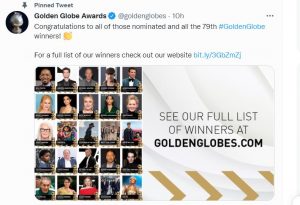The importance of digital media during Congress’ summer recess
With the COVID-19 crisis changing so much for lawmakers, PR pros and lobbyists who want to have an impact must embrace digital channels.

COVID-19 has upended so much of how Washington functions on a daily basis. But there’s one annual tradition it won’t stop: Congress’ annual summer recess.
Starting in August, members of Congress will be back home for several weeks for their traditional summer break. Both chambers are set to return to town after Labor Day to confront a thicket of thorny legislative issues–including the possibility of additional action to respond to the ongoing pandemic.
While August may be a relatively sleepy period in Washington, it’s prime time for issue groups, job creators and other organizations to get their messages heard where it matters most: in the home states of members.
Under usual circumstances, engagement would be primarily face to face. Members would travel across their states and districts for town hall meetings, factory tours, small business roundtables, and in-person meetings with key groups.
But the standard recess model is out the window this year. As with so much else during the COVID-19 crisis, this summer’s congressional recess will be digital. Now’s the time for advocacy groups and companies to start planning for this new dynamic.
Believe it or not, members of Congress are just as glued to their smartphones as most Americans. They use their mobile devices to access news sites, scroll through Twitter, and peruse Facebook. Organizations that can tailor their messages to the digital world during the upcoming congressional recess will be one step ahead.
So how can groups achieve digital reach and return on investment in today’s online environment? There are a number of key ways:
- Create and sponsor compelling and informative social media and targeted e-newsletter/publisher content to ensure messaging is specifically reaching target audiences as they’re engaging with news, friends, family and community members.
- Geo-target exactly when and where key legislators and their inner-circles are located (yes, the internet knows this). Messages can be targeted to certain ZIP codes, down to specific physical building locations, be it homes, favorite restaurants or social clubs.
- Amplify on audio. With the explosive growth of podcasts, many members of Congress may be catching up on their favorite shows during this downtime. Assure audio reach with advertising on outlets such as Pandora and Spotify, along with targeted podcast sponsorships via host-read or provided pre-roll and mid-roll show advertisements.
- Google away. As most government offices use Bing, Microsoft, or Yahoo as default browser homepages, ensure brands and organizations trying to reach Congress are running Google Search Ads that will serve legislators, appearing above organic search results as they search for key terms.
- Catch Congress while they’re streaming. Consider Connected TV (CTV) and Over-The-Top (OTT) advertising options, including Amazon FireTV, Hulu, and Roku.
- Members of Congress also digitally grocery shop. Given the increased popularity of online food purchasing during the pandemic, especially via Amazon, evaluate what additional advertising options are available to achieve reach in this digital area too.
- Don’t forget to offer digital virtual webinars and livestreams often, whether through company video conferencing accounts or in partnership with reputable third party networks, to educate Congress on issues in an informative, yet interactive setting such as Zoom. Pro-tip: Facebook Live and LinkedIn’s Live functionality will send a push notification to followers and attendees’ devices upon event start as a reminder to tune-in.
All of these tactics should be supplemented and echoed by traditional local earned media campaigns. Opinion pieces, press rollouts, and targeted media placements in members’ hometown papers all help reinforce a group’s core messages.
The August recess provides an outstanding opportunity for groups and businesses to make their priorities heard loud and clear, away from the distractions of Capitol Hill and before the presidential campaign fully takes over the daily news cycle. Those who dominate the digital space with targeted campaigns, complemented by earned media outreach, will be best positioned for policy wins when Congress picks up its work this fall.
Jeff Grappone led communications and messaging strategy for the Senate Republican Conference as Deputy Staff Director and was appointed by President Trump to serve as the Assistant Secretary of Labor for public affairs. He is a Senior Vice President at ROKK Solutions, a bipartisan public affairs firm.
Rachel Winer is a digital communications leader with 12+ years of experience in social media, digital paid media advertising, PR, and marketing for fortune 500 companies and small businesses, government and non-profits. Rachel most recently built and led the Digital Paid Media team at Ketchum. She is a Senior Vice President of Digital at ROKK Solutions.






